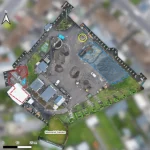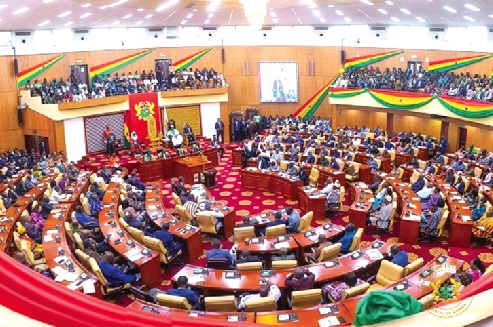Fertilizer smuggling is hampering the government’s Fertiliser Subsidy Programme (FSP) for smallholder farmers and the Planting for Food and Jobs (PFJ) programme.
This was the finding in a 2020 Monitoring of Fertilisers report by the Peasant Farmers Association of Ghana (PFAG) involving 2,675 farmers.
The farmers were drawn from five districts (Hohoe, Shai Osudoku, West Mamprusi, Mamprugu-Moagduri, Pusiga and Sisala East) and their views on the timely delivery of fertilisers, price, its availability and accessibility.
The finding was presented at a stakeholders’ workshop on the 2021 implementation of the PFJ programme in Accra.
Presenting the findings, the Head of Programmes and Advocacy at the Peasant Farmers Association Ghana, Dr Charles Kwowe Nyaaba said, the cartel’s activities were affecting farmers.
He indicated that the major contributor to the smuggling and hoarding of the fertilizer was the lack of enforcement of the maximum quantity of fertilizer purchased by farmers.
Expressing the concern of farmers, the National President of the Peasant Farmers Association, Abdul-Rahman Mohammed, said that farmers found it difficult to have access to fertilisers on the market.
According to him, the government’s inability to pay suppliers was a drawback to the adequate provision of fertilizers.
He was concerned that the slash in subsidy for farmers was affecting the ability to purchase the product.
“The reduction of the subsidy component from 50% to 38% will put a lot of pressure on the smallholder farmer, especially women, due to the impact of COVID-19,” he said.
He said that “it has become very frustrating for our members who cannot access the subsidised fertiliser.”
Responding to the farmers’ issues, the Director of Crops Services at the Agric Ministry, Seth Osei-Akoto, admitted that access to fertilizer was due to increased smuggling.
Mr Osei-Akoto explained that it has become challenging for the Ministry to combat the smuggling due to the chain and organised nature in which it was done.
Investigations into the matter in some border communities revealed that a cartel involving politicians, chiefs, community leaders, security agencies, and farmers was allegedly involved in the illegal act.
He stated that the Ministry would collaborate with various stakeholders within the value chain to find a lasting solution to lessen the plight of peasant farmers.
The Director also mentioned that the Ministry had provided the needed quantities of fertilizers to farmers for this season.
“Last week, I was in the northern part of the country, and even in places where cultivation has already started, there were lots of fertilisers in stock,” he said.
“In May 2019, we distributed almost 60,000 fertilizers. In 2020, we gave 34,048 metric tonnes of fertilizers, and in 2021, we sent out 21,996 bags of fertilizers,” he said.
















